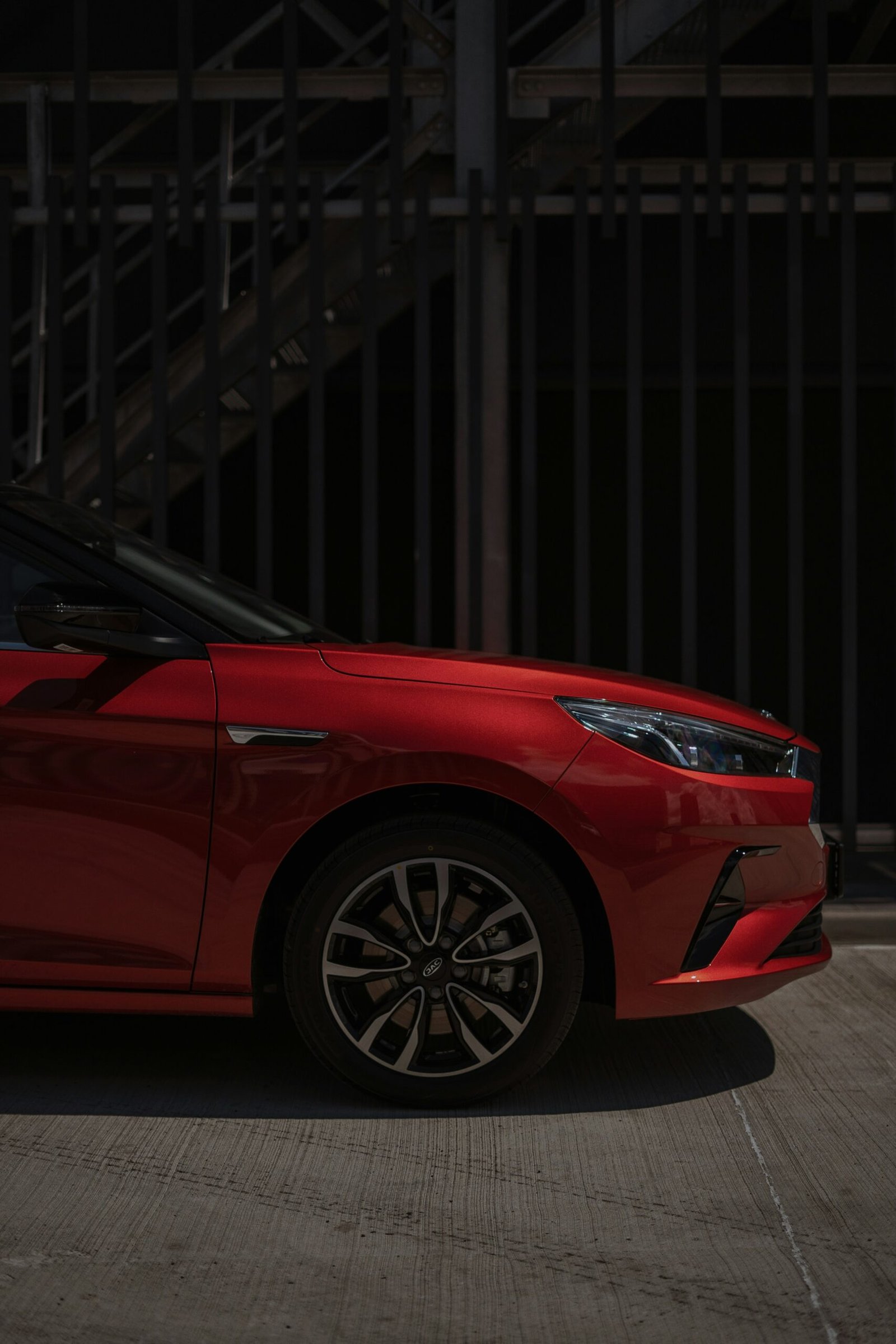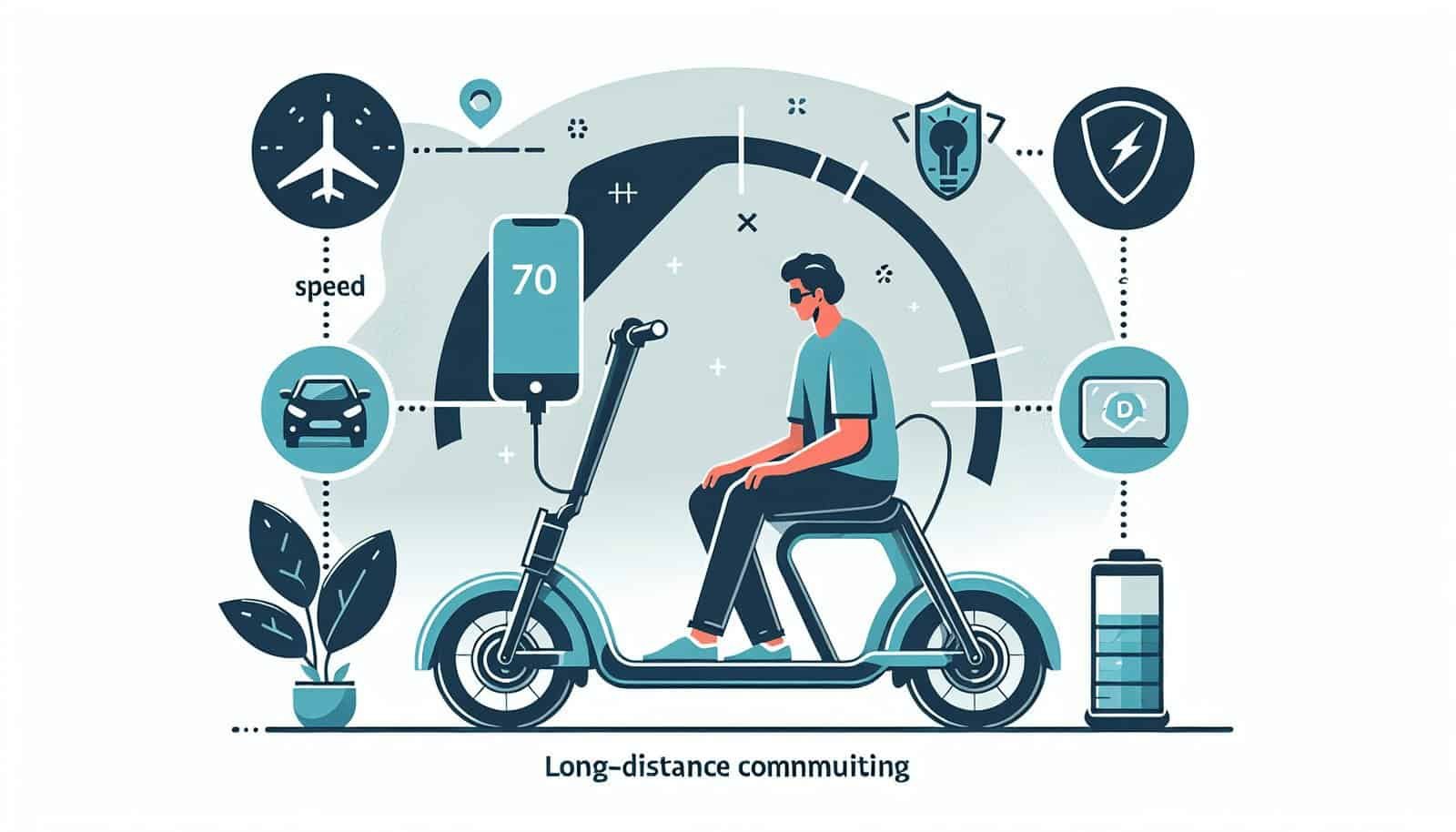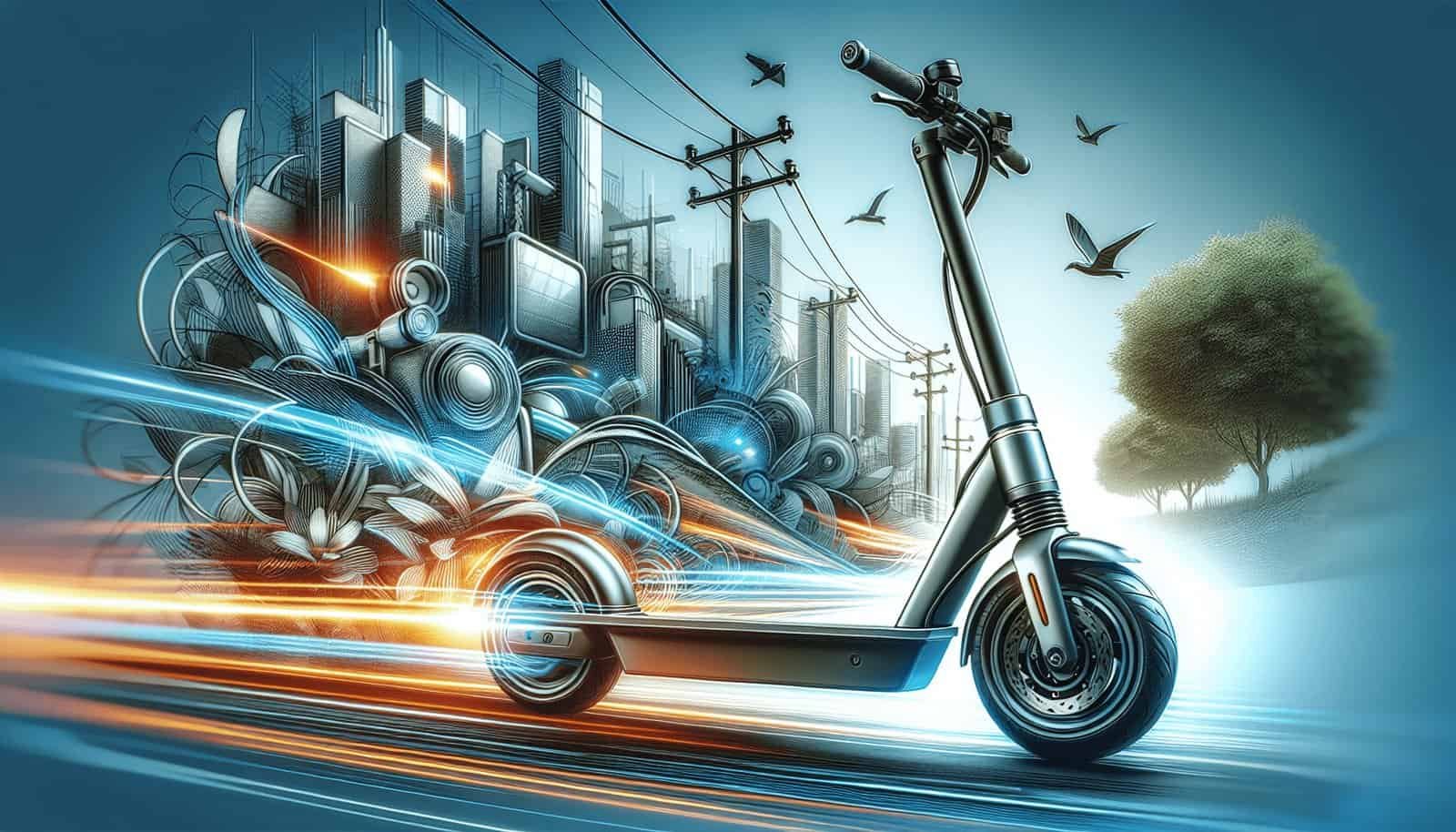If you’ve ever wondered whether your electric scooter is up for the task of long-distance commuting, we’ve got the answer for you. Whether you’re considering ditching your car for a greener mode of transportation or simply looking for an alternative to public transit, electric scooters have gained popularity in recent years for their convenience and eco-friendliness. In this article, we’ll explore the possibilities of using an electric scooter for your daily commute and provide you with some helpful insights and tips to make your journey smooth and enjoyable. So, hop on board as we discuss the exciting world of electric scooter commuting!

Factors to Consider
When it comes to using your electric scooter for long-distance commuting, there are several factors that you need to consider. These factors will not only help you determine whether your electric scooter is suitable for long-distance rides, but they will also guide you in making the right choices to ensure a smooth and efficient commute.
Battery Life
The battery life of your electric scooter is one of the most crucial factors to consider when it comes to long-distance commuting. After all, you wouldn’t want your scooter’s battery to give up on you halfway through your journey. It’s important to ensure that your electric scooter has a battery with sufficient capacity to meet your commuting needs.
Speed and Range
Another important factor to consider is the speed and range capabilities of your electric scooter. The speed of your scooter will determine how quickly you can reach your destination, while the range will determine how far you can go on a single charge. These factors are particularly important for long-distance commuting, as you want to be able to reach your destination in a timely manner without having to worry about running out of battery.
Terrain
The terrain you’ll be riding on is another factor that you need to take into account. Different terrains can have a significant impact on the performance of your electric scooter. Whether you’ll be riding on flat terrain, hilly or inclined terrain, or even off-road, it’s important to choose an electric scooter that can handle the conditions you’ll be facing.
Road Conditions
The condition of the roads you’ll be riding on can also affect your long-distance commuting experience. Smooth pavement will provide a comfortable ride, while bumpy or rough roads can be more challenging to navigate. Additionally, obstacles and traffic can also impact your journey. Considering these road conditions will help you choose an electric scooter that can handle the challenges you may encounter.
Battery Life
Importance of Battery Life
The battery life of your electric scooter is crucial, particularly when it comes to long-distance commuting. It determines how long you can ride before needing to recharge. A longer battery life means you can cover more distance, while a shorter battery life may require you to recharge more frequently, which can be inconvenient.
Calculating the Required Battery Life
To calculate the required battery life for your long-distance commuting needs, you need to consider the distance you’ll be traveling on a daily basis. Determine the average distance you’ll cover, taking into account any detours or additional stops you may need to make. Multiply this distance by the number of days you’ll be commuting each week. This will give you an estimate of the total weekly distance. You can then choose an electric scooter with a battery capacity that can cover this distance comfortably on a single charge.
Factors Affecting Battery Life
Several factors can affect the battery life of your electric scooter. These factors include the weight of the rider, the incline of the terrain, the speed at which you’re riding, and even the outside temperature. It’s important to be aware of these factors and take them into consideration when selecting an electric scooter for long-distance commuting.
Understanding Battery Capacity
Battery capacity is measured in watt-hours (Wh) and indicates the amount of energy the battery can store. The higher the watt-hour rating, the longer the battery will last before needing to be recharged. When choosing an electric scooter for long-distance commuting, look for a battery with a higher watt-hour rating to ensure that it can meet your needs.
Speed and Range
Determining Speed and Range
When it comes to long-distance commuting, the speed and range of your electric scooter play a vital role in determining how quickly you can reach your destination and how far you can go on a single charge. To determine the speed and range you require, consider the distance you’ll be covering daily and the time you have available for your commute. A higher speed will help you cover more distance in less time, while a greater range will allow you to travel longer distances without needing to recharge.
Maximum Speed
The maximum speed of your electric scooter is an important consideration, particularly for long-distance commuting. While most electric scooters have a maximum speed of around 15-20 mph, some models can reach speeds of up to 30 mph or more. Choose an electric scooter with a maximum speed that suits your commuting needs and local regulations.
Cruising Range
The cruising range of your electric scooter refers to the distance it can travel on a single charge. This is an important factor to consider for long-distance commuting. Look for an electric scooter with a cruising range that meets your daily commuting requirements and allows for any additional stops or detours you may need to make.
Factors Affecting Speed and Range
There are several factors that can affect the speed and range capabilities of your electric scooter. These factors include the weight of the rider, the terrain you’ll be riding on, the speed at which you’re traveling, and even the outside temperature. It’s important to take these factors into consideration when selecting an electric scooter for your long-distance commute.
Terrain
Flat Terrain
If you’ll be primarily riding on flat terrain during your long-distance commute, you have the advantage of smoother and easier riding conditions. Electric scooters are well-suited for flat terrain, as they can maintain a steady speed without much effort. A scooter with a moderate cruising range and a decent top speed should suffice for commuting on flat terrain.
Hilly or Inclined Terrain
If your long-distance commute involves riding on hilly or inclined terrain, you’ll need an electric scooter with more power and torque. Hilly terrain requires more effort from the scooter’s motor, which can drain the battery faster. Look for an electric scooter with a higher watt-hour rating and a motor that can handle the demands of climbing hills.
Off-Road Riding
Off-road riding involves traversing rough or uneven terrain, such as gravel paths or unpaved roads. Not all electric scooters are designed for off-road riding, so it’s important to choose one that can handle the challenges of such terrain. Look for an electric scooter with larger, air-filled tires and good suspension to ensure a comfortable and stable ride.
Effects on Battery Life and Speed
Both hilly or inclined terrain and off-road riding can have an impact on the battery life and speed of your electric scooter. Riding uphill or on rough terrain will require more power from the motor, resulting in a shorter cruising range and potentially slower speeds. It’s important to consider these effects when planning your long-distance commute and choosing an electric scooter.

Road Conditions
Smooth Pavement
Riding on smooth pavement provides the most comfortable and efficient experience for long-distance commuting. The smooth surface allows for a stable ride and minimizes the impact on the scooter and rider. Electric scooters with smaller wheels and good suspension are well-suited for riding on smooth pavement, as they can absorb any minor bumps or imperfections in the road.
Bumpy or Rough Roads
If your long-distance commute involves riding on bumpy or rough roads, you’ll need an electric scooter with larger, air-filled tires and good suspension. These features help to absorb the impact of bumps and provide a smoother ride. Consider an electric scooter with greater ground clearance and sturdy construction to handle the challenges of bumpy or rough roads.
Obstacles and Traffic
When commuting long distances, you’ll likely encounter various obstacles and traffic on your journey. It’s important to be aware of your surroundings and choose an electric scooter that can maneuver easily around obstacles and navigate through traffic. Look for a scooter with good handling, responsive brakes, and adequate acceleration to ensure a safe and efficient commute.
Safety Considerations
While riding an electric scooter, especially for long-distance commuting, safety should always be a top priority. Wear a helmet to protect your head in case of any accidents or falls. Follow all traffic rules and signals to ensure the safety of yourself and others. Additionally, regular maintenance of your electric scooter, such as checking tire pressure and brake functionality, is essential for safe and reliable commuting.
Tips for Long-distance Commuting
Plan Your Route
Before starting your long-distance commute, take the time to plan your route. Consider the distance, road conditions, and any potential obstacles or traffic congestion you may encounter. It’s also a good idea to have alternative routes in mind in case of unexpected circumstances. Planning your route will help ensure a smooth and efficient journey.
Charge Your Scooter Overnight
To avoid any battery-related surprises during your long-distance commute, make it a habit to charge your electric scooter overnight. This will ensure that you start your commute with a full battery, giving you the maximum cruising range. It’s also a good idea to have a charging schedule to ensure that your scooter is always ready for your daily commute.
Carry a Backup Battery
If you anticipate needing additional battery life for your long-distance commute, consider carrying a backup battery. Some electric scooters have the option to attach an additional battery for extended range. Having a backup battery can provide peace of mind, especially if you know that your commute may push the limits of your scooter’s battery capacity.
Pack Essential Accessories
For a comfortable and convenient long-distance commute, consider packing essential accessories. These may include a backpack for carrying your belongings, a phone mount for easy access to navigation, a water bottle holder, and lights for visibility during nighttime rides. These accessories will enhance your experience and make your long-distance commuting more enjoyable.

Benefits of Electric Scooter Commuting
Eco-friendly Transportation
Using an electric scooter for long-distance commuting offers several environmental benefits. Unlike traditional gasoline-powered vehicles, electric scooters produce zero emissions, reducing air pollution and carbon footprint. By choosing an electric scooter for your commute, you are contributing to a cleaner and greener environment.
Cost Savings
Compared to owning and maintaining a car, an electric scooter is a cost-effective mode of transportation for long-distance commuting. Electric scooters have lower upfront costs, require minimal maintenance, and the cost of electricity used for charging is significantly lower than fuel costs for automobiles. Long-distance commuters can enjoy significant cost savings by switching to an electric scooter.
Convenience and Time Efficiency
Electric scooters provide a convenient and time-efficient solution for long-distance commuting. They are compact, lightweight, and easy to maneuver through traffic, allowing you to navigate through congested areas more efficiently. Electric scooters also offer the advantage of shorter travel times, thanks to their ability to bypass traffic and take alternative routes.
Exercise and Health Benefits
Using an electric scooter for long-distance commuting not only helps you reach your destination efficiently but also provides an opportunity for exercise and physical activity. While electric scooters offer motorized assistance, they still require some physical effort. Commuting with an electric scooter can help improve cardiovascular health, strengthen leg muscles, and promote an active lifestyle.
Safety Precautions
Wear a Helmet
Wearing a helmet is a crucial safety precaution when riding an electric scooter for long-distance commuting. Helmets provide vital protection for your head in the event of an accident or fall. Choose a helmet that fits properly and meets safety standards to ensure maximum protection. Remember, safety should always be your top priority.
Follow Traffic Rules
When using an electric scooter for long-distance commuting, it’s important to abide by all traffic rules and regulations. Obey traffic signals, yield to pedestrians, and use designated bike lanes or shared paths whenever possible. Following traffic rules ensures the safety of yourself and others, and helps foster a harmonious relationship with other road users.
Be Aware of Surroundings
Being aware of your surroundings is crucial for a safe long-distance commute on an electric scooter. Pay attention to road conditions, obstacles, and other vehicles around you. Stay vigilant and anticipate the actions of pedestrians and motorists. By remaining alert and actively observing your surroundings, you can minimize the risk of accidents and ensure a safe journey.
Regular Maintenance
Regular maintenance of your electric scooter is essential for safe and reliable commuting. Check your scooter’s tires, brakes, lights, and other components regularly to ensure they are in proper working order. Inspect for any signs of wear or damage, and address any issues promptly. Following a maintenance schedule will help keep your electric scooter in top condition for long-distance commuting.

Charging Infrastructure
Availability of Charging Stations
Before opting for an electric scooter for long-distance commuting, consider the availability of charging stations in your area. Ensure that there are sufficient charging points along your route or near your destination. This will ensure that you have access to charging facilities, especially if your commute requires multiple charges throughout the day.
Home Charging Options
Home charging is a convenient and accessible option for long-distance commuting. Most electric scooters come with a charger that you can plug into a standard electrical outlet at home. Consider the charging time required and plan your routine accordingly. Having access to a nearby power outlet for charging at home makes long-distance commuting more practical and efficient.
Portable Chargers
If you are concerned about the availability of charging stations along your commute, consider investing in a portable charger. Portable chargers allow you to charge your electric scooter on the go, giving you the flexibility to extend your ride if needed. These portable chargers are compact and easy to carry, making them a convenient option for long-distance commuting.
Charging Time Considerations
When choosing an electric scooter for long-distance commuting, consider the charging time required. Different models and battery capacities may have varying charging times. It’s important to factor in this charging time when planning your commute, ensuring that your scooter is fully charged and ready to go when you need it.
Conclusion
Long-distance commuting with an electric scooter can offer an efficient, sustainable, and enjoyable way to get around. By considering factors such as battery life, speed and range, terrain, road conditions, and safety precautions, you can choose the right electric scooter to meet your commuting needs. With the benefits of cost savings, convenience, and environmental friendliness, electric scooters provide an excellent alternative to traditional commuting methods. So, evaluate your needs, choose the right electric scooter, and enjoy efficient and sustainable commuting.


